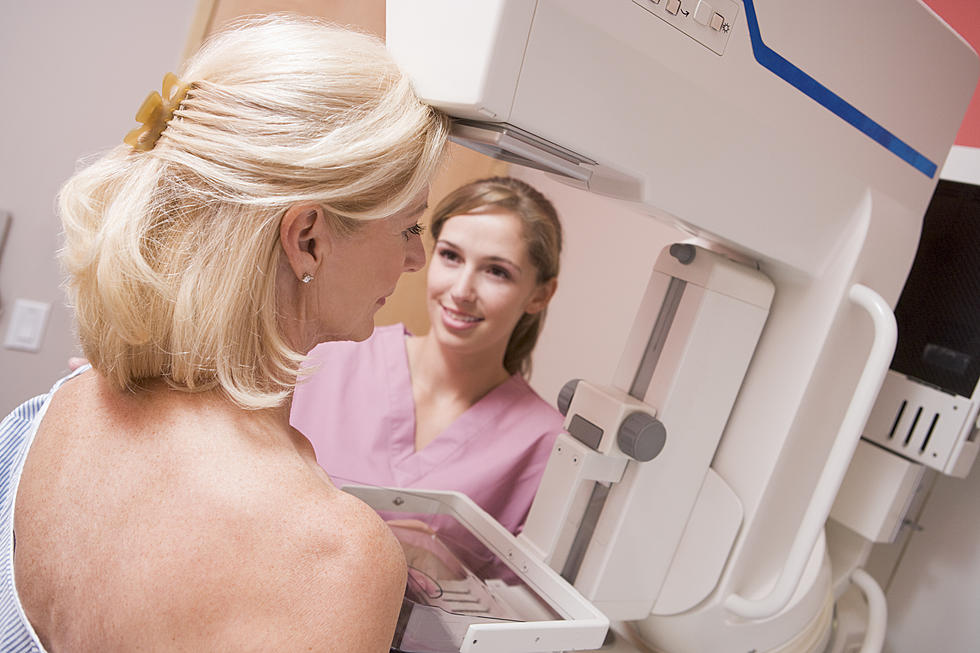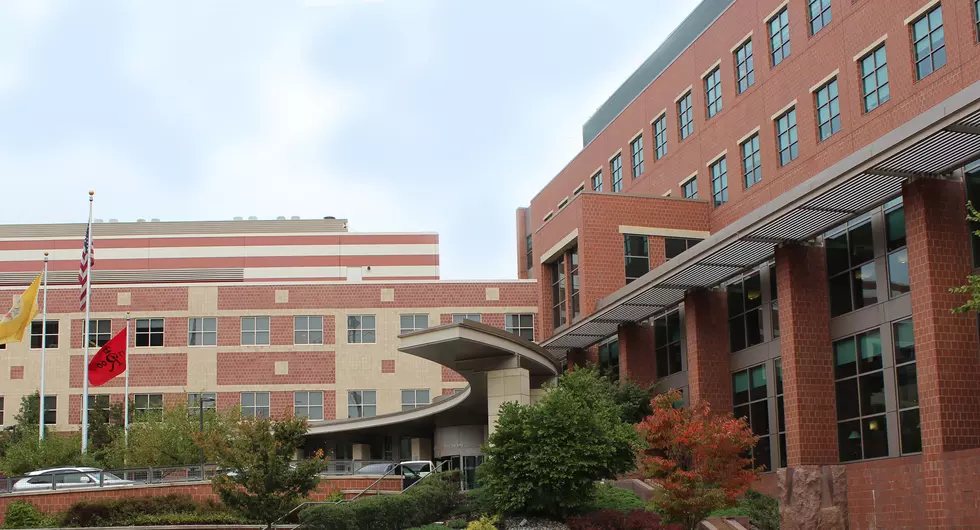
Clinical Trial Offered to Patients with Rare and Hard to Treat Forms of Cancer
The Rutgers Cancer Institute of New Jersey and is joining forces with its System Partner Meridian Health in offering patients with rare forms of cancer or with cancer that no longer responds to standard treatment a chance to participate in a clinical trial.
Mark Krasna, M.D., Medical Director of Meridian Cancer Care, explained the approach to the "precision medicine" initiative, aimed at personalizing cancer treatments for patients.
"The whole idea behind precision medicine is to identify usually genetic changes that can be identified in the cancer and then match those genetic changes with certain compounds, certain molecules, certain drugs, that we know are effective and can block those genetic changes."
There are many cancers that are resistant to typical therapy, according to Dr. Krasna, and he pointed out typical chemotherapy can hurt normal cells while destroying cancer cells, leading to significant side effects for the patient.
"If you think of the most common cancers, like lung cancer, colon cancer, breast cancer, prostate cancer, we generally have a good feeling for what works the first time, but many cancers, especially rarer malignancies, very unusual ones, we really don't have a good first-line therapy. So, in those very rare cancers, definitely there's a value in those cases to do this genetic testing early on, and that's where you get the idea of precision medicine treatment for a genetic abnormality in the particular kind of cancer," Krasna said.
He used the example of a lung cancer patient who succumbs to the disease because either they didn't respond to the usual drug or developed a so-called "resistance" to that chemotherapy drug.
"When you have a recurrance or a re-treatment, now you're looking for something that's unique, something that might give you a better chance to treat the patient, and usually, because they've had treatment in the past, you're looking for ways to minimize the side effects," added Krasna.
Participants of the clinical trial will be required to undergo blood work and allow their biopsy or surgical specimen to be examined by a team of experts, ranging from medical and surgical oncologists to radiation specialists.
"But then equally important, and sometimes more importantly, we have molecular biologists in the room and cancer scientists in the room who are working on developing new drugs, sometime they're new compounds that haven't been even yet approved for specific diseases, but are known to block certain genes," said Krasna.
Krasna noted he believes the clinical trial will produce a totally new paradyne of treating cancer. "It's not going to matter so much what type of cancer it is, what body part it came from, and maybe in won't even matter as much whether it's stage 2, or stage 3 or stage 4, but what we'll be looking at is the gene expression of the tumor and saying, does this patient have the kind of genetic abnormalities that we have new treatments, new drugs that could help with."
“The multi-disciplinary expertise needed for such an initiative is available at Rutgers Cancer Institute of New Jersey, as New Jersey’s only National Cancer Institute-designated Comprehensive Cancer Center. And with the participation of Meridian as our System Partner in this trial, we now have a greater ability to reach more patients across the state who can benefit from this research,” said Cancer Institute Director Robert S. DiPaola, MD.
Within the Meridian system, patients will be referred from Jersey Shore University Medical Center, Ocean Medical Center, Riverview Medical Center, Southern Ocean Medical Center, and Bayshore Community Hospital.
“Our relationship with Rutgers Cancer Institute of New Jersey as a System Partner allows us access to cutting-edge clinical trial offerings that may only be available at National Cancer Institute-designated cancer centers and their Network hospitals. Through the analysis being conducted by physician scientists at Rutgers Cancer Institute, we’re building hope for local residents as we give Meridian clinicians an opportunity to offer new therapies and improve outcomes for our patients so that they can remain closer to home,” added Krasna.
Individuals one-year old or older who have been diagnosed with a rare form of cancer or a cancer that is no longer responding to standard treatment are eligible to participate, though other criteria also must be met. The study is offered through the Cancer Institute of New Jersey Oncology Group (CINJOG), which is comprised of physicians throughout New Jersey from the Cancer Institute network of hospitals. For additional information on how to participate, individuals should call 732-235-8675. More information also is available at meridianhealth.com.
Clinical trials and research studies underway at Rutgers Cancer Institute of New Jersey explore diagnosis, treatment and prevention of cancer, as well as management of cancer symptoms. The Cancer Institute of New Jersey currently enrolls more than 1,200 patients in clinical trials each year, including approximately 17 percent of all new adult cancer patients and approximately 70 percent of all pediatric cancer patients. That compares with fewer than five percent of all adult cancer patients enrolled nationwide. As New Jersey’s only National Cancer Institute-designated Comprehensive Cancer Center, the Cancer Institute offers patients access to treatment options not available at other institutions within the state.
More From 92.7 WOBM








![Grieving During The Holidays [AUDIO]](http://townsquare.media/site/394/files/2015/12/Meridian-2.jpg?w=980&q=75)
